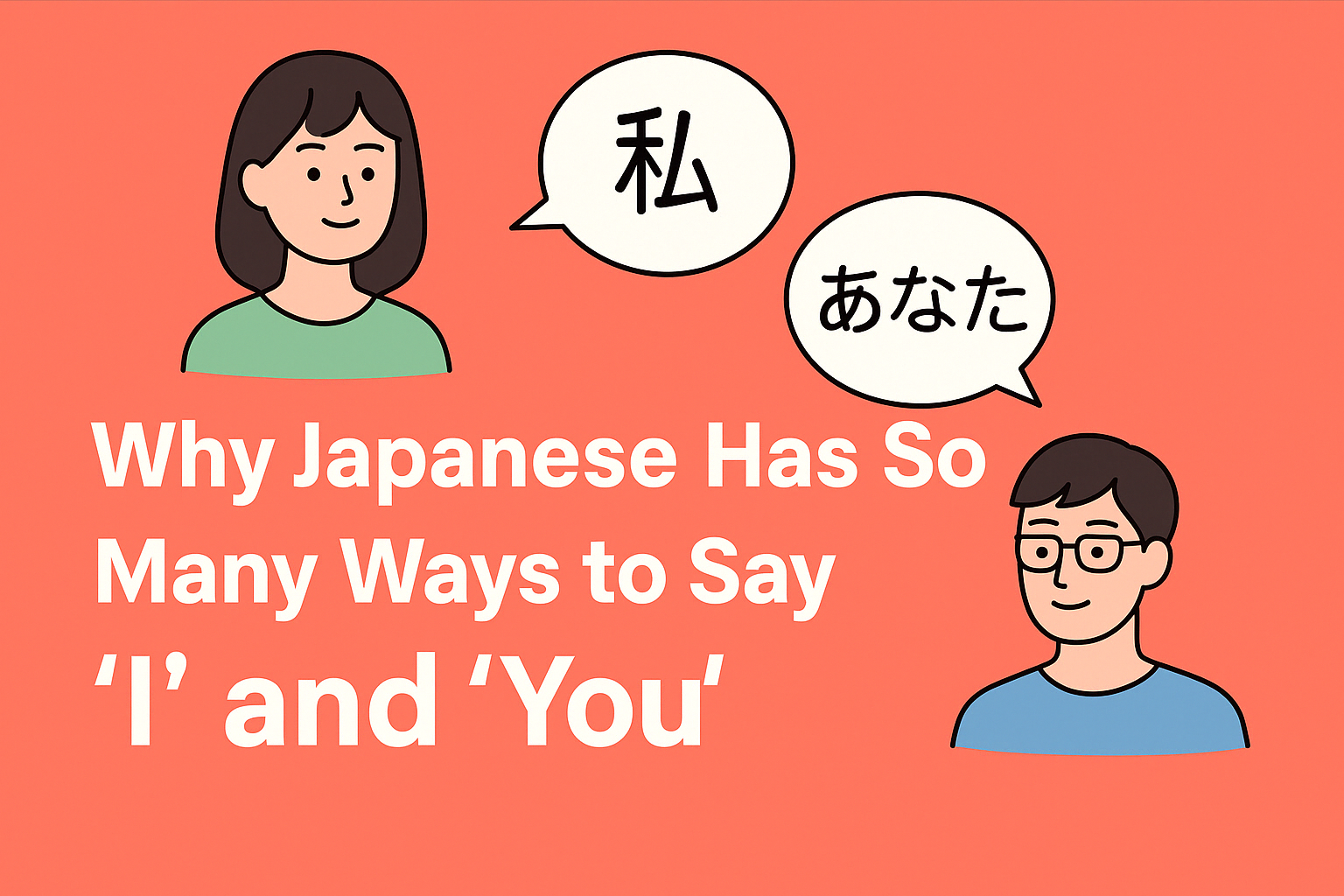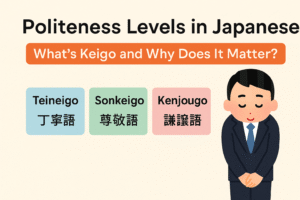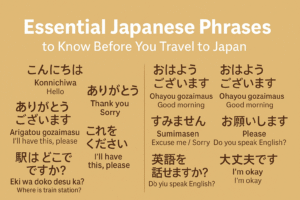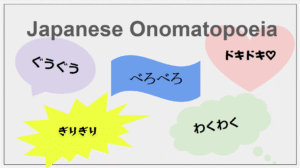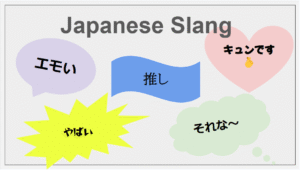When learning Japanese, one of the first surprises is this:
There isn’t just one word for “I” or “you.”
In fact, there are dozens—and which one you use depends on your gender, formality, relationship, and even mood!
Let’s break down this fascinating part of the Japanese language and what it says about culture, identity, and respect.
🧍♀️ Common Ways to Say “I” (First-Person Pronouns)
| Japanese | Meaning / Usage |
|---|---|
| 私 (watashi) | Polite and neutral. Safe for formal situations or for women in most contexts. |
| 僕 (boku) | Polite but masculine. Commonly used by men, especially in casual or semi-formal settings. |
| 俺 (ore) | Very casual and masculine. Often used by men with friends or in informal situations. |
| あたし (atashi) | Casual and feminine. Often used by women in relaxed, informal settings. |
| わし (washi) | Old-fashioned. Sometimes used by elderly men. |
| うち (uchi) | Regional (Kansai), feminine, and casual. |
| 自分 (jibun) | Literally “oneself.” Sometimes used in sports or military-style speech. |
💡 Using the wrong pronoun can sound too stiff—or too aggressive. Choose wisely!
🙋♂️ Common Ways to Say “You” (Second-Person Pronouns)
| Japanese | Meaning / Usage |
|---|---|
| あなた (anata) | Polite but can sound distant or overly formal. Sometimes used by wives to refer to husbands. |
| 君 (kimi) | Casual. Often used when speaking to juniors, children, or in romantic contexts. |
| お前 (omae) | Very casual and often masculine. Can be rude depending on the tone or situation. |
| あんた (anta) | Casual or rough. Used in TV dramas a lot. Can sound aggressive if misused. |
| てめえ / 貴様 (temee / kisama) | Extremely rude. Used only in anime, manga, or when you’re really angry. Don’t say these in real life! |
| Name + さん / くん / ちゃん | The safest and most polite way to address someone. Just use their name! |
💡 In Japanese, it’s common to avoid using “you” at all—especially in formal speech. Use names or just drop the subject.
🤯 Why So Complicated?
Japanese is all about social context. The way you speak reflects your:
- Relationship to the listener
- Age and gender
- Level of formality
- Region or dialect
- Emotional tone
Using different pronouns helps express all of that in just one word.
✨ Final Thoughts
Yes, it might seem overwhelming at first—but this variety is part of what makes Japanese so rich and interesting.
And the good news? Most Japanese people are very understanding if you make a small mistake.
So don’t stress—just try your best, and you’ll gain a deeper appreciation for the language and the culture behind it.
